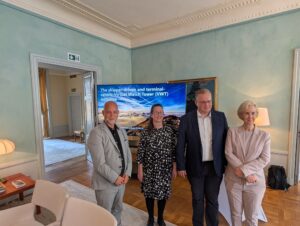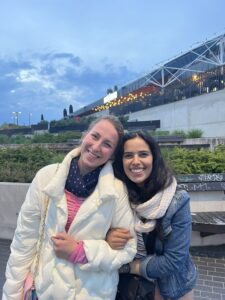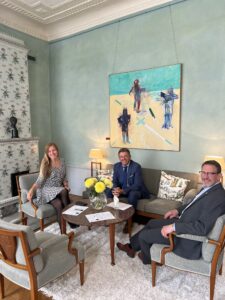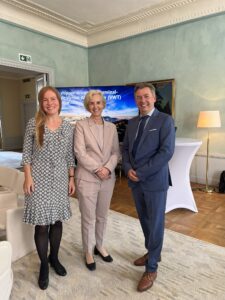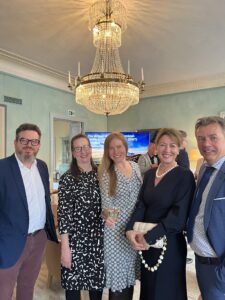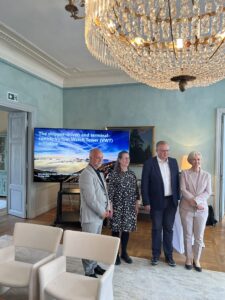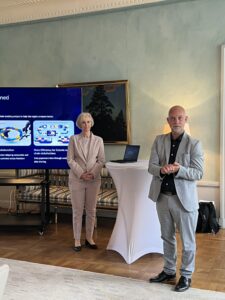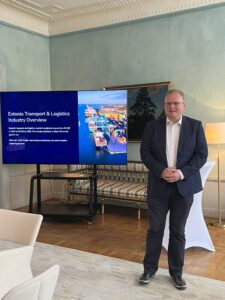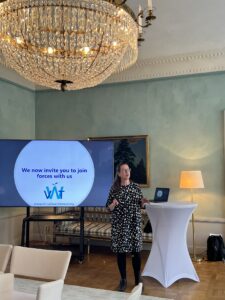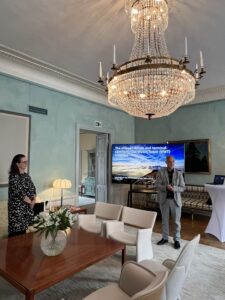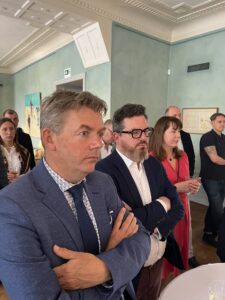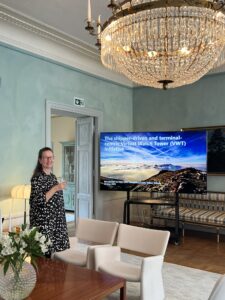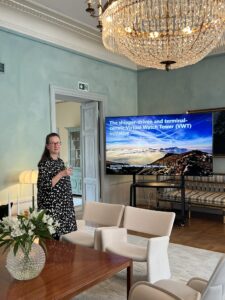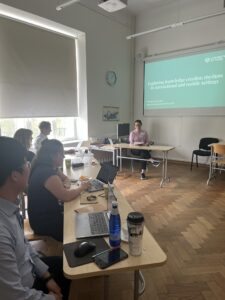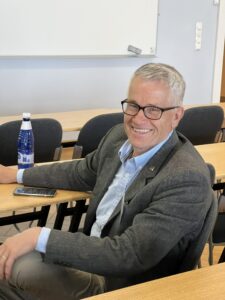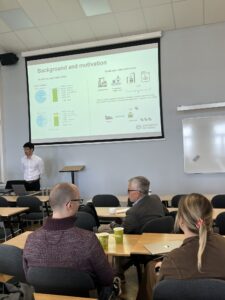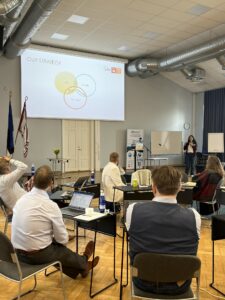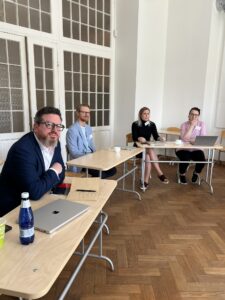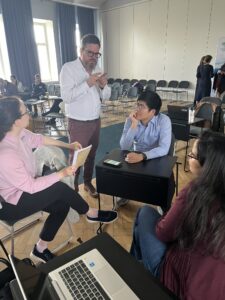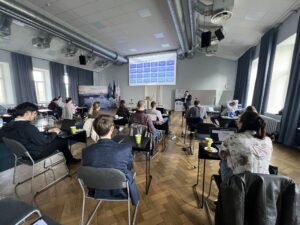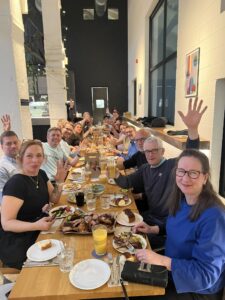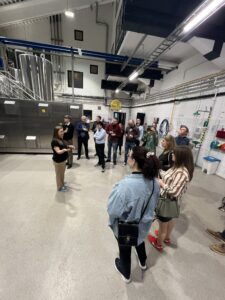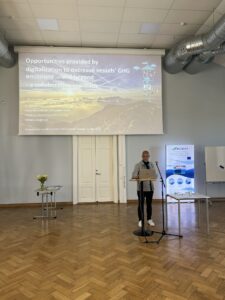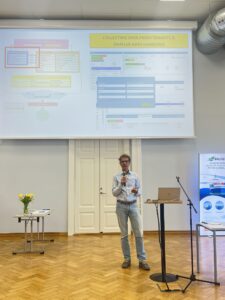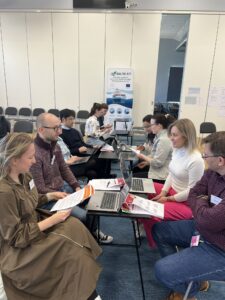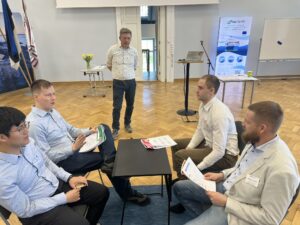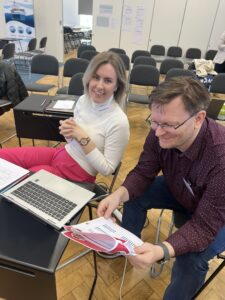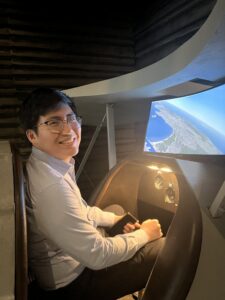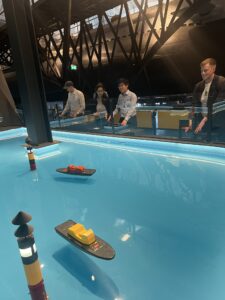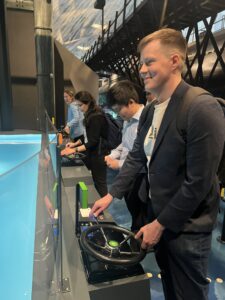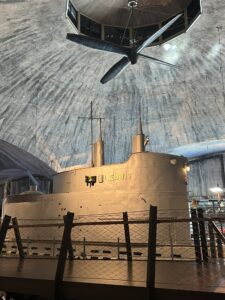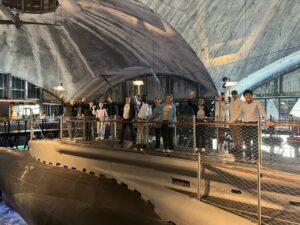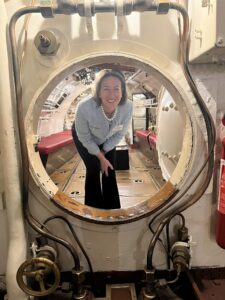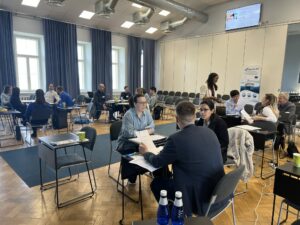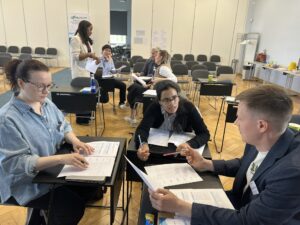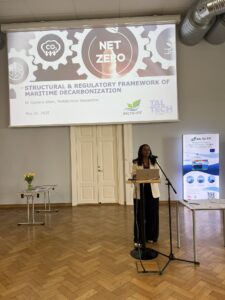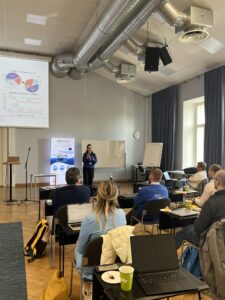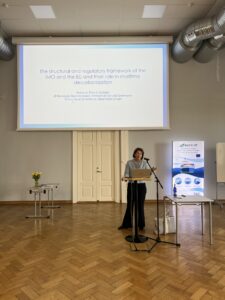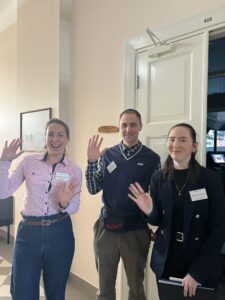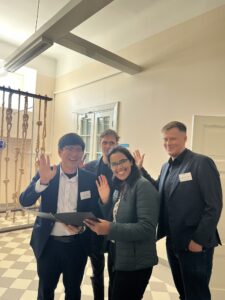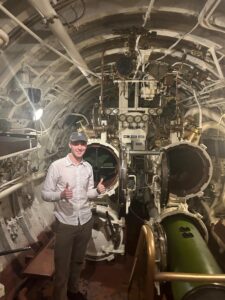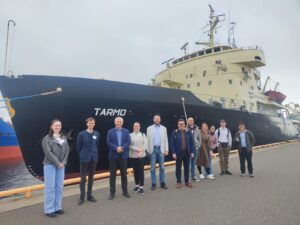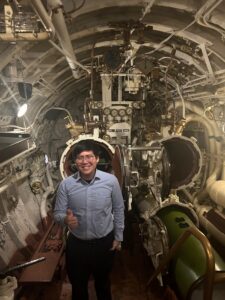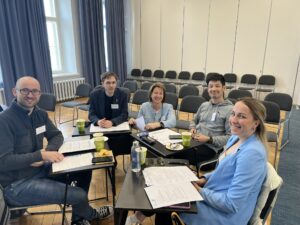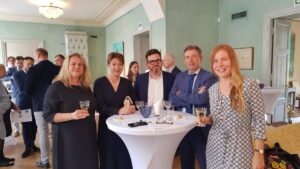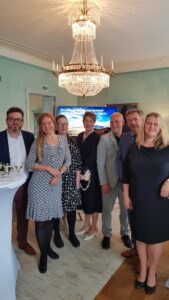During 19–23 May 2025, the BALTIC-FIT Summer School 2025 took place in Tallinn, Estonia, hosted on the premises of the TalTech Estonian Maritime Academy. The school brought together PhD candidates and young researchers focusing on operational measures to reduce greenhouse gas (GHG) emissions in shipping.
The event was organised through the joint efforts of members of the Maritime Transport Research Group at TalTech Estonian Maritime Academy, within the framework of the EU-funded BALTIC-FIT project.
Over the course of five intensive days, participants deepened their understanding of decarbonisation strategies through interactive lectures, simulation exercises, workshops, and peer exchange.
Lectures and workshops were delivered by leading experts in the field. Topics covered included:
- Ports as a Force for Positive Change — Dr. Maurice Jansen (Erasmus University)
- Port Sustainability — Seçil Oğuz (TalTech)
- Impact of CO₂ Emission Taxation and Fuel Types on Arctic Shipping — Dr. Olivier Faury (EM Normandie Business School)
- Structural and Regulatory Framework of IMO — Dr. Ellen Johanne Eftestøl (Norwegian Business School)
- Profitability of Shipping — Prof. Olli-Pekka Hilmola (TalTech)
- GHG Mapping and Modelling in Shipping and Digital Twin Applications — Prof. Jonne Kotta (TalTech)
- Technological Opportunities to Decrease Vessel Emissions — Teemu Manderbacka (VTT)
- Opportunities Provided by Digitalisation to Decrease GHG Emissions — Mikael Lind (RISE)
Practical skills were further strengthened through hands-on trainings by Anna Zmiievska (ANROMIND) on communication, dissemination, and proposal writing, and a session on research management led by Yrsa Cronhjort and Kaisa Vehmas (VTT).
On Thursday, 22 May PhD students took part in a dedicated Thesis Workshop with mentoring and feedback from Prof. Sanja Bauk (Estonian Maritime Academy), Assoc. Prof. Serkan Turkmen (Tallinn University of Technology), as well as experts Ellen Kaasik (Port of Tallinn), Jarkko Rahikainen (VTT), Johann Östling (RISE), and Keneth Lind (RISE)
One of the highlights of the week was the “Future of Fuels Game” — a serious simulation developed and facilitated by Dr. Maurice Jansen, helping participants explore the real-world dilemmas of the fuel transition in maritime transport.
The programme also included technical site visits and a remote shipping simulation session on the EMERA Simulator led by Olev Tõnismaa.
As part of the BALTIC-FIT Summer School 2025, a networking reception was organised at the Swedish Embassy in Estonia, co-hosted by the Embassy and RISE Research Institutes of Sweden. The event featured a presentation of the Virtual Watch Tower (VWT) and was honoured by an opening speech from H.E. Charlotte Wrangberg, Ambassador of Sweden to Estonia. The reception offered a unique opportunity for stakeholders to learn about cross-border digital collaboration in logistics and Estonia’s active role in the VWT initiative.
We sincerely thank all speakers, participants, and partners who made the BALTIC-FIT Summer School 2025 a success. The event reinforced the value of regional collaboration and practical training in advancing maritime decarbonisation across the Baltic Sea and beyond.
